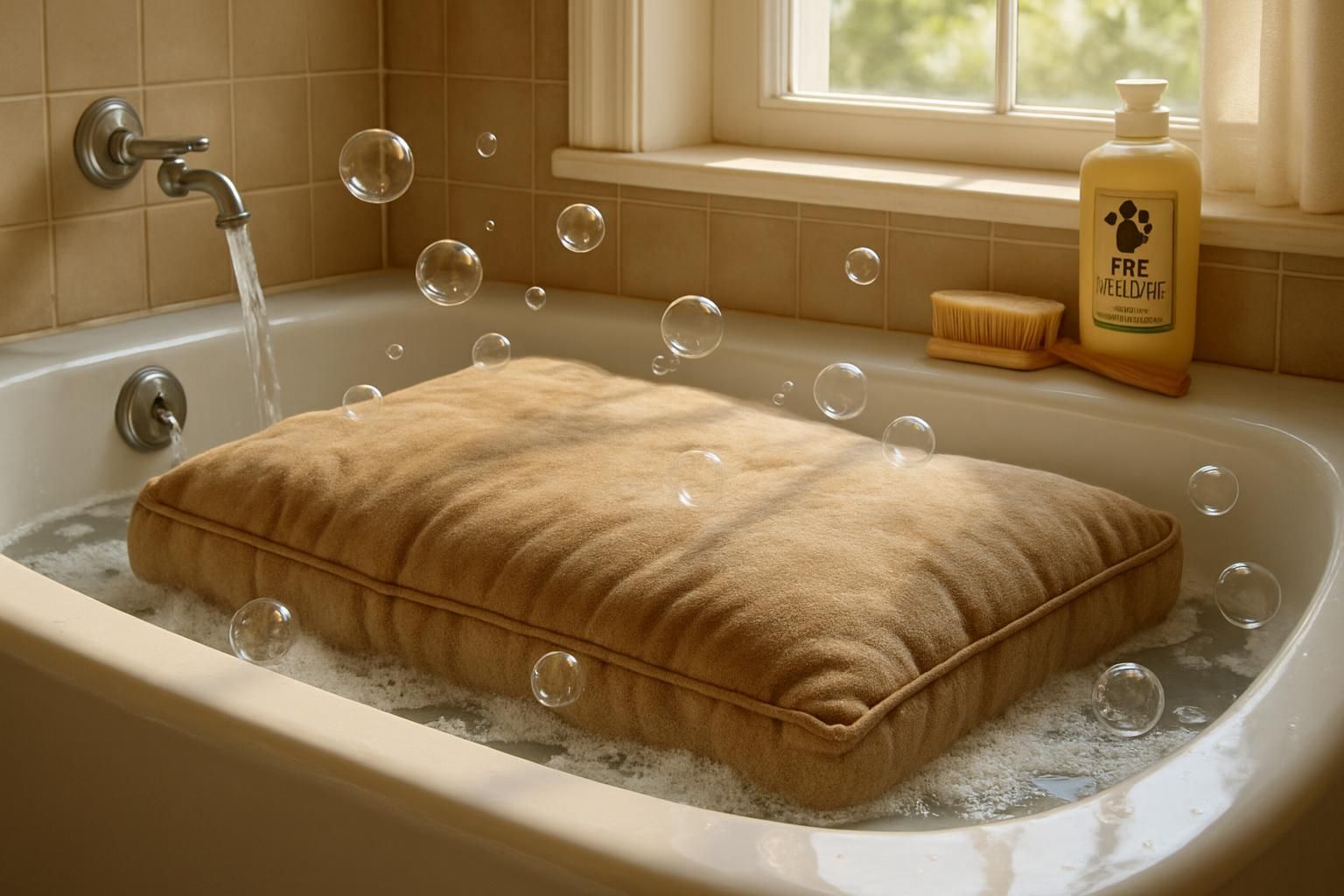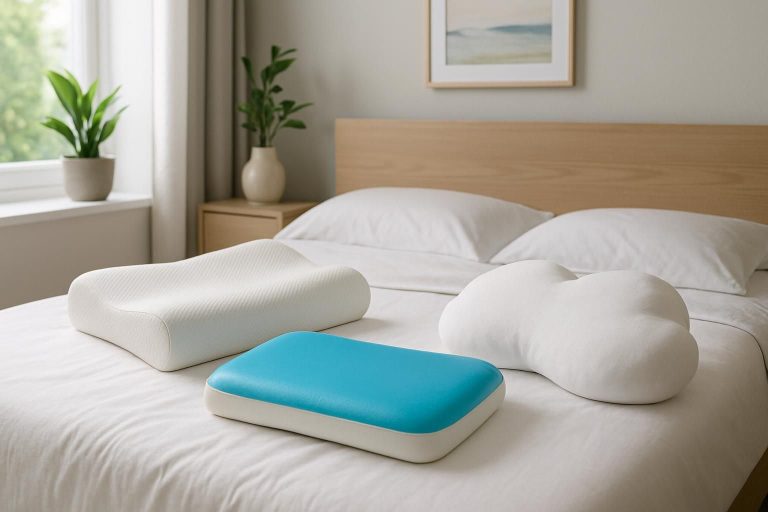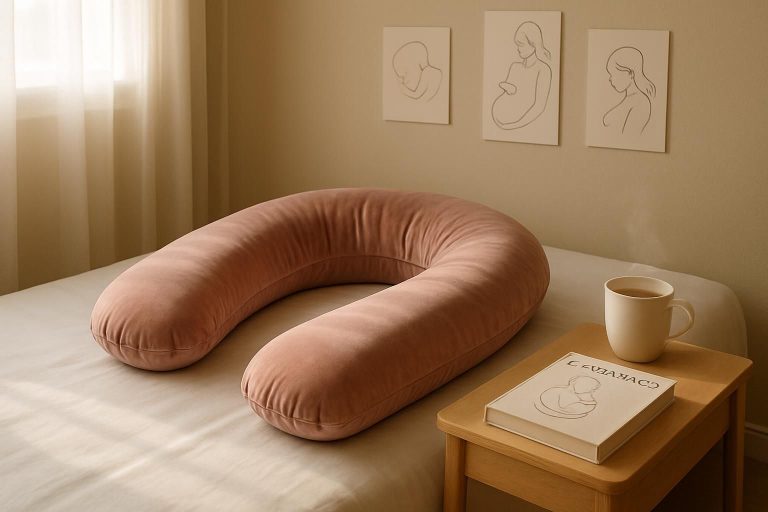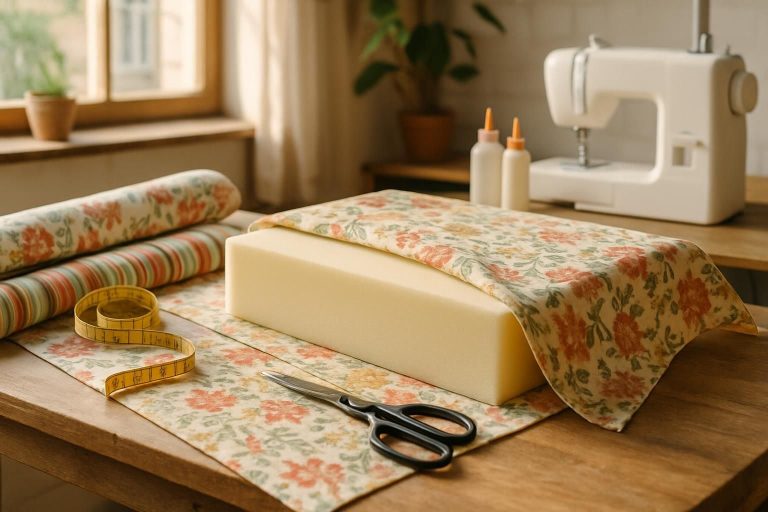A large dog cushion is much more than just a spot for your four-legged friend to rest. It’s a true haven of softness and security, an essential part of daily well-being. But this resting space, often in regular contact with the floor and your dog, collects a significant amount of hair, dirt, bacteria, and sometimes even parasites invisible to the naked eye. Thorough and thoughtful cleaning goes beyond aesthetics: it prevents allergies, reduces persistent odors, and protects your pet’s health. A clean cushion also improves indoor air quality in your home by reducing allergens and maintaining a healthy environment for the whole family. Additionally, this care brings another often-overlooked benefit: the longevity of the cushion. Proper maintenance protects the fibers and padding, avoiding premature wear and ensuring lasting comfort. So, discover how to wash a large dog cushion with efficiency, gentleness, and respect for the fabric and your faithful companion’s health. 🐾🧼
Why Regularly Washing a Large Dog Cushion Is Essential for Health and Comfort
Reducing Allergens and Protecting Against Bacteria and Parasites
Hair, dust, dirt, and dander that your dog naturally leaves on its cushion can quickly become a source of allergens. These often-invisible particles can cause skin irritation, respiratory issues, and even infections—for your pet and for you. Without regular cleaning, bacteria thrive there, and even parasites like fleas or mites may appear. These not only cause itching for your dog but can also spread throughout your home. Systematically washing the cushion effectively eliminates these harmful elements, thus minimizing risks and ensuring your dog has a safe and clean place to relax.
Beyond health prevention, a well-maintained cushion contributes to impeccable hygiene—essential for dogs with allergies or sensitive skin. Remember that your dog’s skin is porous and delicate; a clean cushion helps prevent irritation and significantly improves their daily comfort.
-
🛡️ Reduces bacterial growth
-
🐜 Prevents parasite infestations
-
🤧 Decreases allergens for both dog and family
-
🛌 Improves comfort and well-being for your dog
Improving Indoor Air Quality and Increasing the Cushion’s Lifespan
When a dog cushion collects hair, dust, and microbes, indoor air quality can seriously suffer. These airborne particles contribute to indoor pollution, a common source of various health issues. Regularly cleaning the cushion tackles these pollutants at their source. This is especially valuable in homes where the dog shares everyday living spaces.
Additionally, consistent and proper maintenance helps preserve the fabric and padding over time. Infrequent washing leads to gradual damage, as embedded dirt and moisture weaken the fibers. Regular washing is thus a waste-reducing practice: it extends the cushion’s life while maintaining its softness and shape, ensuring your dog’s comfort.
|
Action |
Effect on the Cushion 🐾 |
Impact on Dog’s Health 🐶 |
|---|---|---|
|
Monthly Cleaning |
Preserves fabric and padding |
Reduces allergies and infections |
|
Hair Removal |
Removes tangles and embedded dirt |
Minimizes skin irritation |
|
Complete Drying |
Prevents mold and odor |
Keeps the space hygienic |
Preparing to Wash a Large Dog Cushion: Key Steps for Effective Maintenance
Choosing the Right Time to Wash and Dry Your Dog’s Cushion
Why Opt for Dry and Sunny Weather When Washing
The timing of your wash has a direct impact on your dog’s future comfort. A warm, sunny day is ideal for air drying. Humidity slows down drying, promotes bad odors, and encourages bacteria growth. A dry, well-ventilated atmosphere ensures deep moisture removal.
Quick drying also prevents folds or soggy areas that can deform the cushion and make it less comfortable. Therefore, washing and drying the cushion on clear days is a must, especially for larger cushions that take longer to dry.
-
☀️ Prefer warm, sunny days
-
💨 Choose a ventilated space
-
🚫 Avoid cold or damp days
-
⏰ Plan for adequate drying time
Creating a Cleaning Routine Based on Cushion Use
A regular routine is key to successful upkeep. How often you wash depends on several factors: your dog’s size, activity level, how dirty the cushion gets, and its location. Dogs who spend lots of time outside may require more frequent washing to avoid bringing in dirt and pests.
Generally, a full wash once a month is recommended. Between washes, daily habits like light brushing or using natural disinfectant sprays can help keep it clean. Removable washable covers also make daily maintenance much easier.
|
Usage Profile 🐶 |
Recommended Washing Frequency 🧼 |
Suggested Interim Care 🧹 |
|---|---|---|
|
Active Outdoor Dog |
Twice a month |
Weekly brushing and disinfectant |
|
Calm Indoor Dog |
Once a month |
Light brushing twice a month |
|
Dog with Allergies |
Every 3 weeks |
Frequent cover washing + vacuuming |
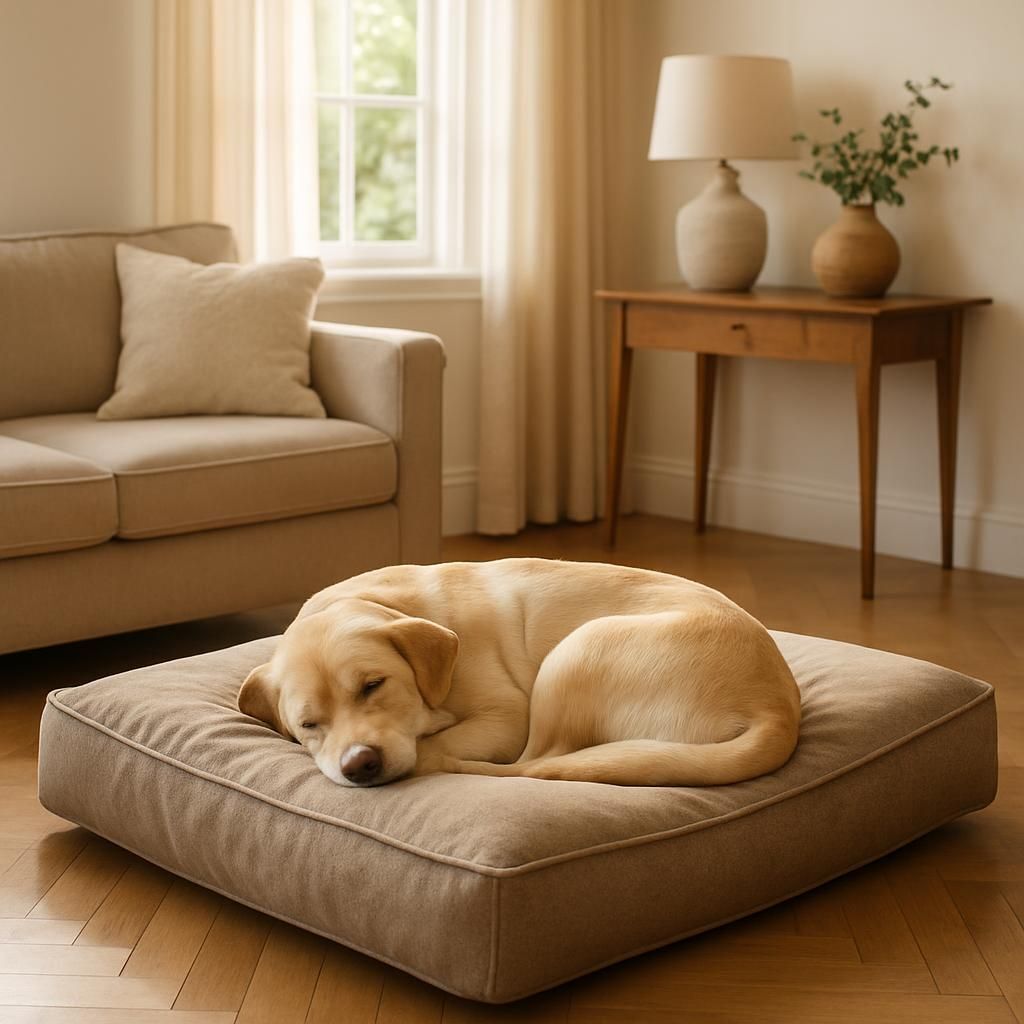
Optimized Methods to Wash a Large Dog Cushion Without Damaging It
Machine or Hand Wash: How to Choose and Apply the Right Method
Before anything, always refer to the cushion’s label. This guide will specify the maximum temperature, whether machine washing is allowed, and any special fabric care. Following these instructions prevents fiber damage and protects the padding.
If using a washing machine, opt for a gentle detergent suitable for sensitive pet skin. Use the delicate cycle to reduce mechanical wear. Tossing in dryer balls helps preserve the fluffiness and prevents clumping.
For fragile or bulky cushions, hand washing is often preferable. Soak it in lukewarm water with mild soap for a gentle clean. Use a soft brush or cloth to scrub gently, then rinse thoroughly without twisting or squeezing. This method helps preserve the shape and comfort.
-
🧺 Machine Wash: gentle cycle with mild detergent
-
🖐️ Hand Wash: lukewarm bath with gentle cleaning
-
🎾 Use dryer balls to protect the stuffing
-
🔍 Follow the manufacturer’s label carefully
Effectively Removing Hair, Debris, and Stubborn Stains Before and During Washing
The first step is removing hair, crumbs, or debris stuck in the cushion. A strong vacuum or lint brush works great. This makes machine washing more effective and protects filters from clogging too quickly.
For tough stains like mud, spills, or odors, spot treatment is advised before washing. Use a mild stain remover and test it on a hidden spot first. Natural options like white vinegar or baking soda can also help deodorize and clean gently.
|
Type of Stain 🩸 |
Recommended Product 🧴 |
Important Precautions ⚠️ |
|---|---|---|
|
Muddy Dirt |
Mild soap + lukewarm water |
Do not scrub harshly |
|
Persistent Odors |
Baking soda + white vinegar |
Test on a small area |
|
Greasy Stains |
Delicate fabric stain remover |
Avoid bleach and harsh products |
Drying and Post-Wash Care: Tips to Keep Your Cushion Fluffy and Clean
Air-Drying or Using a Dryer: Precautions and Advice
After washing, drying is crucial to maintain the cushion’s structure and comfort. Air drying is gentlest. Lay it out in a well-ventilated area, in the shade to avoid sun fading. Turn it regularly for even drying and to avoid moist patches inside.
If using a dryer, only do so if allowed by the label, and always on low heat. Adding dryer balls restores fluff and prevents stuffing from clumping.
-
🌬️ Prefer air-drying in a ventilated area
-
🕶️ Avoid direct sunlight
-
🔄 Flip regularly for even drying
-
🔥 Use low heat in dryer
Refluffing the Cushion: Restoring Shape and Comfort
Once dry, reshaping the filling is essential. Gently pat, shake, and manually redistribute the foam or fiber to prevent clumping and ensure maximum comfort. These small steps extend the cushion’s life and keep your dog’s bed soft and welcoming.
Tips to Maintain Cushion Freshness and Cleanliness Daily
To avoid frequent deep cleaning, try these additional tips. Regular brushing of your dog limits shedding. Keep dirty dogs off the cushion to avoid contamination. Placing the cushion in a dry, airy space helps prevent bad smells and bacteria. Finally, if the cushion is worn out or used for too long, consider replacing it to ensure comfort and hygiene.
-
🧹 Brush your dog regularly
-
🚫 Restrict access when dog is very dirty
-
💧 Avoid prolonged moisture
-
♻️ Replace cushion when worn
Adapting Washing Methods to Different Cushion Types and Natural Alternatives
Caring for Removable, Orthopedic, Foam, and Waterproof Cushions
Different cushion types require specific care. Removable covers are often machine washable, making them easier to clean. Orthopedic models with memory foam need gentle handling—hand washing is usually preferred to protect internal structure.
Foam cushions, highly sensitive to moisture, must be dried carefully and rarely machine-washed. For waterproof cushions, ensure that the protective layer isn’t damaged by harsh products. Always read the label and tailor your care routine to the cushion type.
|
Cushion Type 🛋️ |
Recommended Washing Method 🧼 |
Specific Precautions ⚠️ |
|---|---|---|
|
Removable Cover |
Machine wash cover only |
Respect label temperature limits |
|
Orthopedic |
Hand wash only |
Do not twist or compress foam |
|
Foam |
Spot clean only |
Quick drying, avoid full immersion |
|
Waterproof |
Gentle wash with neutral soap |
Avoid using fabric softener |
Eco-Friendly Tips and Common Mistakes to Avoid
Natural solutions are increasingly popular for dog cushion cleaning. Baking soda neutralizes odors, white vinegar breaks down stains and disinfects gently, and a few drops of non-toxic essential oils (like lavender) help maintain freshness. These methods are gentle on sensitive dog skin and prevent allergic reactions caused by chemicals.
Still, avoid common pitfalls: bleach or softeners weaken fabrics and may cause itching, aggressive wash cycles damage stuffing, poor rinsing leaves irritants behind, and inconsistent care leads to deterioration that affects your dog’s health. The key is gentle, regular care with appropriate products.
FAQ – Frequently Asked Questions About Washing a Large Dog Cushion
-
How often should a large dog cushion be washed?
A full wash once a month is usually recommended, with regular maintenance depending on your dog’s activity level. -
Can an orthopedic cushion be machine-washed?
Hand washing is preferable to protect the foam and maintain its properties. -
How do you remove hair from a cushion before washing?
Use a powerful vacuum or lint brush to remove hair and improve wash results. -
What natural products are safe to use?
Baking soda, white vinegar, and some non-toxic essential oils are great for gentle deodorizing and cleaning. -
What if the cushion still smells after washing?
Check that it dried properly. Consider rewashing with a natural deodorizer, and replace the cushion if the stuffing is saturated.
